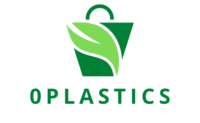Beyond the Bag Ban: Choking Pollution at the Plastic Spring
Plastic bags, the flimsy symbols of our consumerism, have rightly found themselves on the chopping block. But are bans enough? The insidious tendrils of plastic pollution reach far beyond supermarkets, demanding a holistic approach that tackles the problem at its very source: production.
First, let’s debunk the myth of biodegradability. Most “biodegradable” plastics only fragment, remaining microplastic menaces for centuries. We need investment in truly biodegradable alternatives, like bioplastics from cellulose or mushrooms. Research into edible coatings for fruits and vegetables can further eliminate single-use packaging.
Secondly, extended producer responsibility (EPR) schemes must hold manufacturers accountable. Imagine: the plastic you discard finds its way back to the producer, who must then manage its recycling or disposal. This incentivizes sustainable design, with products built for disassembly and reuse.
Thirdly, let’s rethink the very role of plastic. Do we need single-use coffee pods when refillable brewers exist? Can we shift towards durable, repairable appliances instead of the “buy-discard” mentality? Governments can incentivize sustainable design through tax breaks and subsidies, while promoting product repairability standards.
Finally, awareness is key. Consumers, empowered with knowledge, can drive change. Imagine educational campaigns highlighting the hidden plastics in everyday products, or apps that reveal the environmental footprint of our purchases. Imagine schools teaching future generations the true cost of our plastic addiction.
The bag ban is a commendable first step, but it’s merely a Band-Aid on a hemorrhaging wound. By investing in alternative materials, holding producers accountable, rethinking product design, and empowering consumers, we can choke the flow of plastic at its source, before it even chokes our planet. We can build a future where “plastic pollution” becomes a relic of the past, a cautionary tale whispered in the wind, not a choking reality gripping our oceans and landfills.
